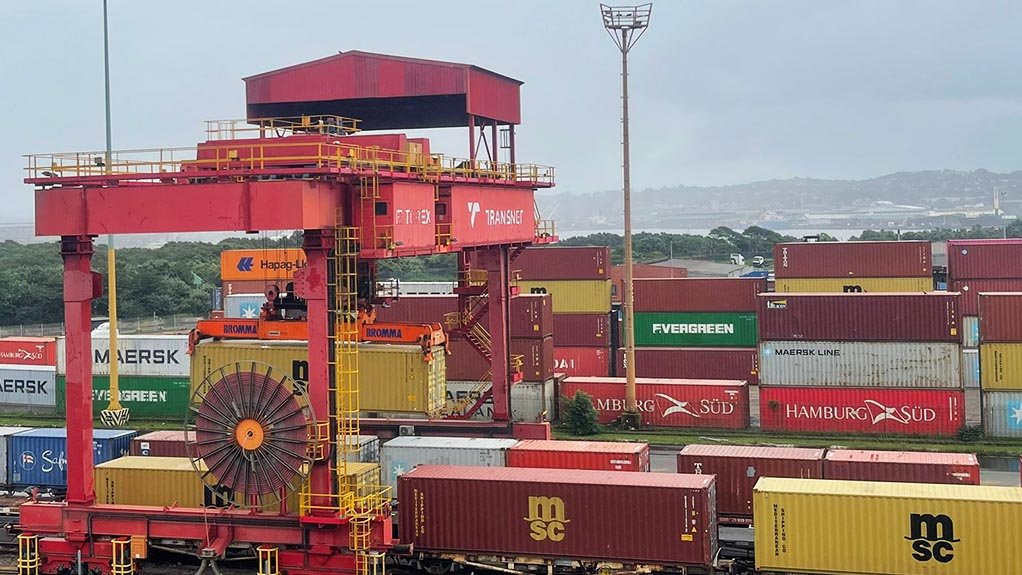Domestic growth expected to be subdued this year
Amid a shift taking place in the global trading landscape, owing to issues such as elevated uncertainties and building inflationary pressures, Investec economist Lara Hodes has said the growth rate for South Africa this year is expected to be modest at about 0.9%.
Speaking at the nineteenth annual Smart Procurement World Indaba, on September 16, Hodes highlighted that, despite some progress having been made on improving the performance of South Africa’s ports and railways, structural challenges, especially on the logistics front, continue to impede optimal activity and export potential.
Hodes also noted that business confidence has slumped, according to the latest data from the Bureau for Economic Research. She explained that business confidence has moved further into contractionary territory, below 50, with many businesses dissatisfied with prevailing conditions and profitability.
“We need a . . . sustainable lift in confidence to drive investment potential, growth and employment,” she argued.
Hodes added that consumer price inflation domestically has ticked up slightly, noting that one of the key drivers of inflation is fuel prices, which have been largely contained, as well as a stronger rand amid a weaker dollar.
She explained, however, that there has been some upside inflationary pressure in the food sector, especially from the meat and meat products category.
In response to the imposition of tariffs by the US, Hodes explained that businesses have had to plan and innovate by seeking out new markets and connections.
“The current protectionist environment . . . has resurfaced, reducing the interdependence on global economies,” she said, adding that the transition to a more sustainable approach and making countries less vulnerable to global shocks is imperative.
Moreover, Hodes noted that China remains South Africa’s largest export market, with Germany in second place and the US third.
While the US is a major export market for the country, Hodes explained that a significant portion of the export basket is exempt from US tariffs, including certain critical minerals, energy products and pharmaceuticals.
Firms and industries that are subject to tariffs and rely heavily on US markets, and those that have benefited from exemptions under, for instance, the African Growth and Opportunity Act (Agoa), are notably impacted.
Sectors that have benefited extensively under Agoa include the automotive sector and certain agricultural sectors, including citrus fruits, nuts and wine.
Hodes explained that the US tariffs were generally implemented to address certain specific trade deficits with the aim of protecting and supporting the US economy and stimulating job growth.
However, the high tariff rate for South Africa compared with other African nations in particular highlights, in part, the strained relationship between the US and the South African government, she said.
“Government support during these very uncertain times is imperative in assisting affected companies to achieve long-term resilience guarding jobs in the country's productive capacity.”
Also speaking at the Indaba, Absa group enterprise development executive Kgalaletso Tlhoaele expressed that, amid shifting procurement regulations, global trade headwinds and growing environmental, social and governance (ESG) imperatives, as well as the increasing importance of technology, particularly AI, procurement leaders are urged to move beyond cost and contract management to strategic thinking, inclusion, resilience and long-term value creation.
“There is an opportunity to innovate and leverage smart procurement practices to create an inclusive economy. Through the linking, match-making and strengthening of the procurement ecosystem, we cannot only generate new opportunities but also provide tangible benefits for our society and our economy,” he said.
“We have an opportunity, once again, to redefine and increase on the localisation and the supply chain impact, because we are now faced with tariffs and [a] very uncertain geopolitical climate,” he added.
Tlhoaele also highlighted the role of AI in opening up opportunities within the procurement supply chain, while embracing sustainability.
“If leveraged appropriately, smart procurement can have a significant multiplier effect,” he said.
Article Enquiry
Email Article
Save Article
Feedback
To advertise email advertising@creamermedia.co.za or click here
Announcements
What's On
Subscribe to improve your user experience...
Option 1 (equivalent of R125 a month):
Receive a weekly copy of Creamer Media's Engineering News & Mining Weekly magazine
(print copy for those in South Africa and e-magazine for those outside of South Africa)
Receive daily email newsletters
Access to full search results
Access archive of magazine back copies
Access to Projects in Progress
Access to ONE Research Report of your choice in PDF format
Option 2 (equivalent of R375 a month):
All benefits from Option 1
PLUS
Access to Creamer Media's Research Channel Africa for ALL Research Reports, in PDF format, on various industrial and mining sectors
including Electricity; Water; Energy Transition; Hydrogen; Roads, Rail and Ports; Coal; Gold; Platinum; Battery Metals; etc.
Already a subscriber?
Forgotten your password?
Receive weekly copy of Creamer Media's Engineering News & Mining Weekly magazine (print copy for those in South Africa and e-magazine for those outside of South Africa)
➕
Recieve daily email newsletters
➕
Access to full search results
➕
Access archive of magazine back copies
➕
Access to Projects in Progress
➕
Access to ONE Research Report of your choice in PDF format
RESEARCH CHANNEL AFRICA
R4500 (equivalent of R375 a month)
SUBSCRIBEAll benefits from Option 1
➕
Access to Creamer Media's Research Channel Africa for ALL Research Reports on various industrial and mining sectors, in PDF format, including on:
Electricity
➕
Water
➕
Energy Transition
➕
Hydrogen
➕
Roads, Rail and Ports
➕
Coal
➕
Gold
➕
Platinum
➕
Battery Metals
➕
etc.
Receive all benefits from Option 1 or Option 2 delivered to numerous people at your company
➕
Multiple User names and Passwords for simultaneous log-ins
➕
Intranet integration access to all in your organisation



















